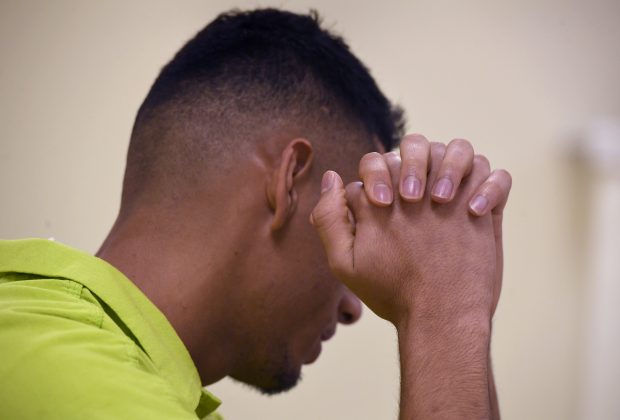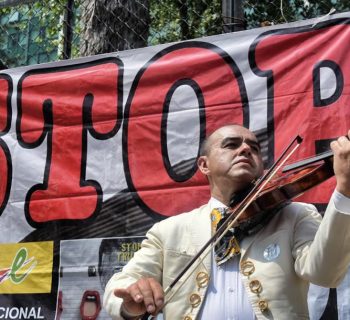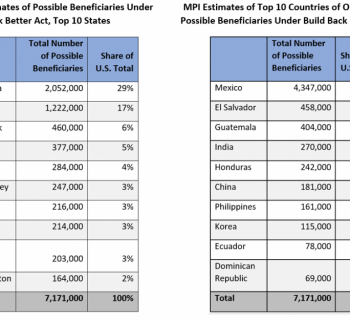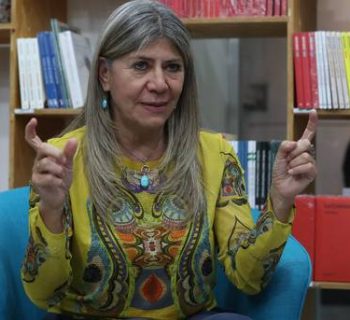The Post story focused on the saga of Kevin Euceda, a Honduran who was 17 when he arrived in the United States in 2017 and was placed in a shelter for immigrant children. In a required meeting with a therapist, he disclosed that he had been forcibly recruited into a gang when he was 12 years old. He thought the session was confidential, but his words were soon shared with ICE and have been used in repeated court hearings to argue for his detention and deportation. He has been detained for nearly three years. Last week, the Department of Health and Human Services (HHS), which oversees the agency in charge of immigrant-child shelters, said what happened to Euceda “shouldn’t be happening” going forward, even as ICE took a step that will keep Euceda in detention indefinitely.
Professional mental-health organizations demanded an immediate stop to the information sharing after it was brought to light. Last week, 41 national organizations signed a joint letter to Congress calling for oversight hearings on the practice, which is part of the Trump administration’s stepped-up immigration enforcement strategy. The American Psychological Association said the practice constituted an “appalling” breach of privacy, and wrote to HHS and ICE calling it “a violation of broadly accepted mental health ethical standards.” The National Association of Social Workers said it was “an affront to this country’s basic principles” of civil rights protections. The American Counseling Association warned that therapists risk their licenses by participating in “an abhorrent violation” of confidentiality. The American Academy of Pediatrics also denounced it.
Many government-funded shelters are not waiting on congressional action to add protections for minors in their care. Among them is the Children’s Village shelter in Upstate New York, whose president, Jeremy Kohomban, said he was “stunned” to learn about the information sharing and immediately began retraining staff. BCFS in Texas, the country’s second-largest HHS shelter provider, has created a script for therapists to follow, which includes the line, “It is important for you to understand that not everything you tell me is confidential.” HHS contractor Bethany Christian Services said it was “saddened” to learn of the practice, and is retraining therapists to explain to children that their records will be shared.
At the McAllen, Tex., shelter where Euceda was first held, therapists are no longer telling children their sessions will be confidential, according to a spokesperson. The therapist who signed the report that ICE used against Euceda and has now resigned said through the spokesperson that she had not known her notes could be shared outside of HHS.
During congressional committee hearings last week, HHS Secretary Alex Azar said the administration is no longer turning over full clinical files to ICE.
“It was a mistake, we fixed it, and on a going forward basis it shouldn’t be happening,” he said under questioning. In addition to sometimes sharing children’s complete files, HHS quietly added a requirement to its public handbook for immigrant-child shelters in 2018, stating that if a minor mentions anything having to do with gangs or drug-dealing, therapists must file a report to be passed to ICE within one day. Azar said the reporting requirement still stands, but therapists will now report only broad outlines of children’s disclosures, and full notes will not be shared “absent the child’s consent.”
This week, Sen. Ron Wyden (D-Ore.) and Sen. Elizabeth Warren (D-Mass.) wrote to HHS and ICE saying that “vulnerable, traumatized children” cannot give meaningful consent. Separately, a dozen senators sent a letter to HHS in which they called Euceda’s experience “astonishing,” and said at minimum, “therapists must stop falsely assuring immigrant children” that they have doctor-patient confidentiality.
On Wednesday, Democrats introduced legislation that would end the information sharing entirely. The bills, sponsored by Rep. Grace F. Napolitano (D-Calif.) in the House and Sen. Jeff Merkley (D-Ore.) in the Senate, would ban HHS from sharing therapy disclosures with ICE to be used in detention or deportation proceedings. ICE would also be banned from requesting this information. “There is a fact finding process for asylum claims. Don’t inflict further trauma by lying to a refugee and violating their trust,” Merkley said.
Also Wednesday, Sen. Richard J. Durbin (D-Ill.), along with 22 other senators, formally requested an inspector general investigation into how the Trump administration was able to share this information in the first place.
Amid the new attention on the case, a federal immigration judge granted Euceda protection against deportation, and ICE immediately appealed. It was the fourth time ICE has appealed an order that could have granted Euceda freedom. Judge Helaine Perlman ruled that under the 1987 United Nations Convention Against Torture, Euceda cannot be deported because if he is returned to Honduras, “it is more likely than not that the respondent would be delivered to MS-13 and subsequently be killed.” The Central American gang MS-13 took over Euceda’s house when he was 12 and forced him to run errands and sell drugs. Euceda said in court testimony he fled when the gang ordered him to commit a murder, and in 2017, HHS certified him as a human-trafficking victim. ICE declined to comment on why it appealed the judge’s ruling, citing ongoing litigation.
Euceda, now 20, will remain detained in rural Virginia as he awaits a decision on the appeal, which is likely to be many months away. Supporters from around the country have offered to visit him, talk to him on the phone, and send him care packages. Local psychologists have also come forward to offer therapy sessions that would truly be confidential.
“It’s a lot to take in,” Euceda said, speaking by phone Tuesday from the detention center for adult ICE detainees that he’d been transferred to on his 18th birthday. He said he is keeping the letters from readers folded up beneath his mattress and has read some to the point of memorization. “These notes have made me feel so good. They’re going to be my most valuable keepsakes when I’m out of this place,” he said.
Source: Washington Post







